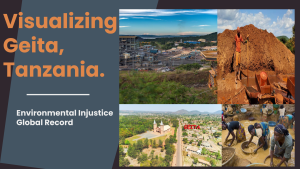Visualizing Geita
xxxx

xxxx

Photo essay, Nwoya District, Uganda

Photo essay to introduce viewers to soil health injustice in Wayanad District, Kerala, India
Wayanad District in Kerala District

In the spirit of life long learning
Welcome to Daniel's testproject
The author is Sonja D. Schmid, an associate professor at Virginia Tech in the Department of Science and Technology in Society. She specializes in STS (science, tech, and society) analysis, nuclear industries, and energy policies. In respect to emergency response, Schmid is able to use her knowledge of previous disasters, current energy technologies, and societal influences to address what we need nationally/ internationally for how we should respond to emergencies. The ability to identify the multifaceted levels of what causes disasters is important to properly responding to them- by changing technologies, training and education of communities, and changing energy policies to avoid and handle more disaster.
Publications relevant to the DSTS Network: "Evacuation from a nuclear disaster" (http://www.jstor.org/stable/214548?seq=1#page_scan_tab_contents), "A comparative institutional analysis of the Fukushima nuclear disaster: Lessons and policy implications" (http://www.sciencedirect.com/science/article/pii/S0301421512009433)
Research focusing on nuclear waste management, developments for safer nuclear energy and studies of the nuclear arms race are also relevant to DSTS Network.
1. USAID and their contributions to Haiti
2. The Institute for Justice and Democracy in Haiti and their impact
3. The United Nations and if they've been sued by Haiti for cholera epidemic
The report implies that technical professionals have to be more careful when responding to large scale disasters; staff responding to emergencies need to have more training for the many internal challenges that would lmit care and assistance to victims. MSF discussed how they had limited man power, labs, and resources.
Artisanal or Snall Scale Mining in Geita.